The 25 best films of 2019
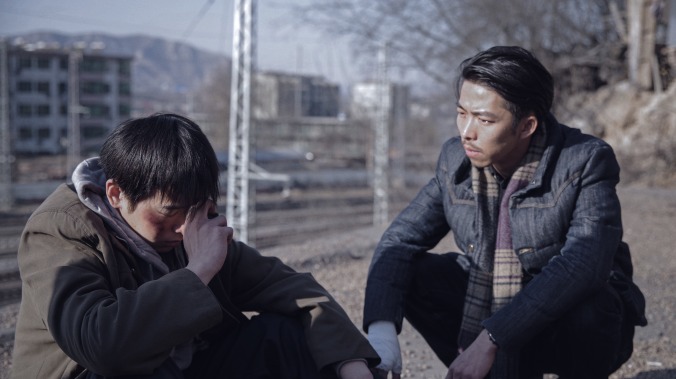
About a month ago, The A.V. Club counted down its favorite movies of the 2010s. Even at 100 selections, the list couldn’t hope to capture the full scope of 10 years of cinema—as plenty were eager to inform us, we excluded tons of notable movies, dammit. Who knows how our decade rundown will age from here, but one thing does seem certain already: It will look woefully light on the great movies of 2019. Whether through a reluctance to call something a masterpiece too quickly or because they just hadn’t yet seen all the pertinent triumphs, our contributors went light on films from the past few months. (Call it the opposite of recency bias.) And those absences will stick out, because just one month later, it’s now fully clear what a powerhouse year it’s been for movies—for space odysseys and class-warfare thrillers, for romances fated and doomed, for the anxieties of aging directors becoming very aware of their age. So don’t just think of the list below, reflecting the individual tastes and consensus favorites of our 13 ballot-filing critics, as a salute to what 2019 had to offer theatergoers and streamers. Also think of it as an asterisk on that 2010s retrospective, celebrating the films we knew were great then and—in the case of our late-breaking #1 of the year—the ones we’ve rallied around since.
Update Mar. 24, 2020: We’ve added where you can stream the films that previously were not available to stream on Hulu, Netflix, Amazon Prime, YouTube, Vudu, and/or Apple TV.
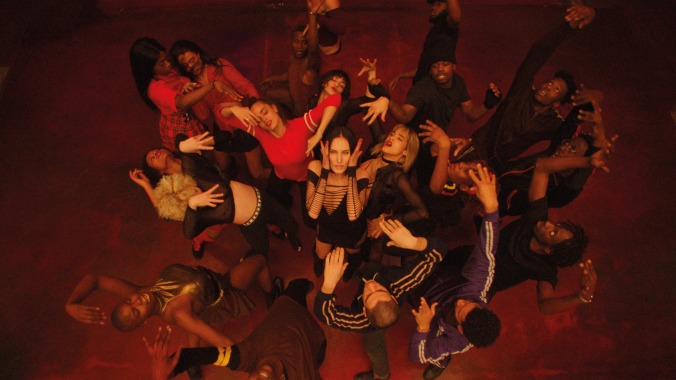
Gaspar Noé’s latest stylistic provocation assembles a set of 20 or so dancers in an abandoned school for—what else?—a deranged drug trip to hell. Like the French director’s previous films, this LSD-fueled dance movie overwhelms the viewer with sheer bodily sensation, and in this case features two of the most impressive set pieces of his career: an opening number set to Cerrone’s “Supernature,” captured in a single unbroken take; and a hypnotic, Busby Berkeley–style overhead view of a dance circle that’s impossible not to imagine in 3D. As ever, Noé’s nihilistic tendencies are on full display: “Life is a collective impossibility,” reads one of the film’s hilariously juvenile pronouncements on birth, life, and death. But there’s a kind of blissful transcendence in watching this diverse dance troupe’s ecstatic movements, accompanied by the director’s aggressive yet elegant orchestrations of light and sensation. While the film lasts, nothing else seems to matter. [Lawrence Garcia]Available on Amazon Prime.
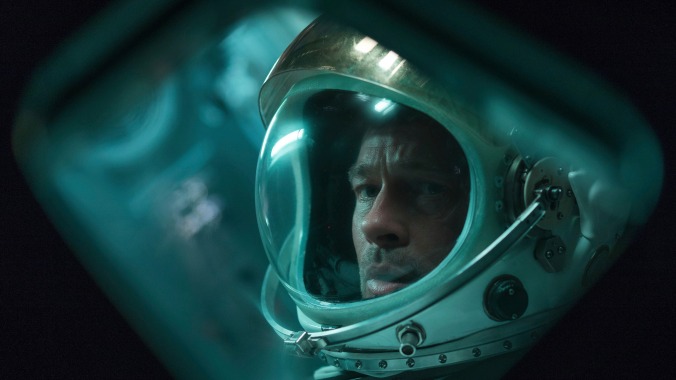
“We’re all we’ve got,” Brad Pitt’s sadsack astronaut declares at the end of his journey and the edge of space. It’s an admission that would leave Fox Mulder crestfallen, but comes across like a glimmer of therapeutic hope in James Gray’s bluntly sentimental, visually spectacular sci-fi melodrama about a stoic spaceman crossing the solar system in search of a father who never taught him how to handle his feelings. With the world on fire, it’s no wonder so many major filmmakers are looking now to the stars. (See the other cosmic journey a few spots down from here.) But to Gray, the inky unknown is less escape route from earthbound concerns than a roundabout path back to them. Structured like a zero-gravity Apocalypse Now but gooey as Xenomorph guts, Ad Astra says it’s the mysteries of inner space rather than the outer kind that really matter. All the same, it finds fresh wonders up there, from lunar pirates to fast-food franchises gone intergalactic. [A.A. Dowd]Available for rent and purchase on Amazon Prime, Google Play, YouTube, and Vudu.
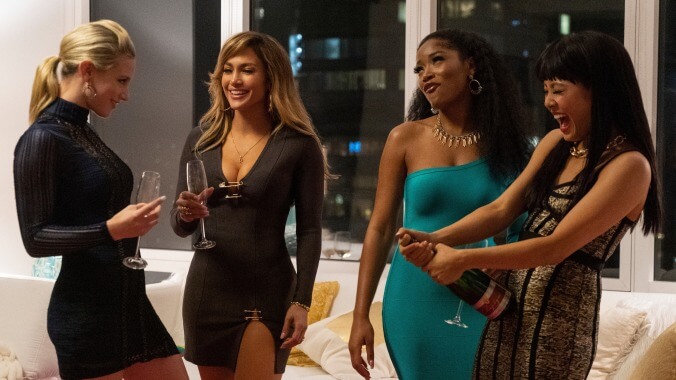
Over the years, Jennifer Lopez has been consistently underrated as an actor, which is part of why it’s satisfying to see her command the screen as the fierce den mother to a money-mad crew of exotic dancers. In the crowd-pleading Hustlers, she’s the center of an ensemble whose camaraderie is so genuine, you can’t help but get an empowering contact high. While many filmmakers attempt to emulate Martin Scorsese, Lorene Scafaria is one of the few to really nail the balance between moral ambiguity and charisma that makes his mobsters so compelling. And like Marty, she employs flashy editing and camerawork in service of more than just pure sensation. Under her direction, Hustlers becomes a feminist counterpoint to typically all-male mob stories, taking the misogynist language of gaslighting and slut-shaming and turning it back onto men who underestimate and objectify women. In short, those Wall Streeters had it coming. [Katie Rife]Available for rent and purchase on Amazon Prime, Google Play, YouTube, and Vudu.
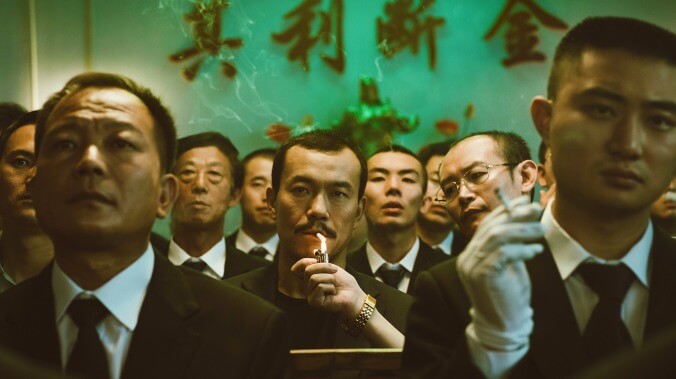
For more than two decades, the Chinese filmmaker Jia Zhangke has chronicled the shifting mores and generational values of his home province of Shanxi with a poet’s sense of irony. His latest centers on a gangster’s girlfriend (Zhao Tao) who takes the fall for her man (Liao Fan); emerging from prison five years later, she goes searching for him in central China, where he and his old underworld partners have established themselves as semi-legitimate businessmen. With a three-part structure of changing eras and fortunes that recalls the director’s flawed but compelling , Ash Is Purest White feels in many ways like a summary of Jia’s career to date. But at its heart is a poignant, deceptively old-fashioned story of emotional constancy in a world that refuses to keep its promises. Jia may have made his reputation on depictions of modern ennui, but he stands now as one of his generation’s finest directors of sincere melodrama. [Ignatiy Vishnevetsky]Available for rent and purchase on Amazon Prime, Google Play, YouTube, and Vudu.
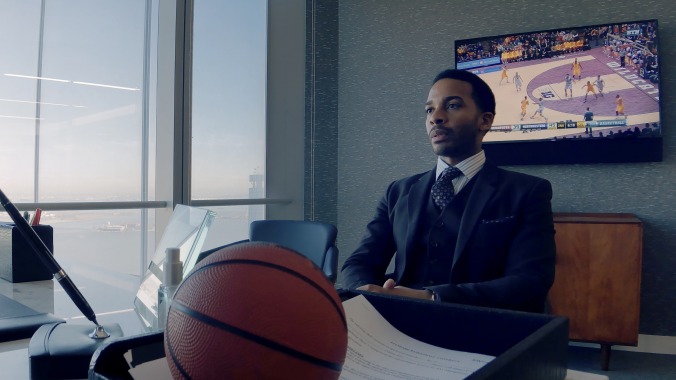
Steven Soderbergh’s filmography is dotted with portraits of people who are very good at what they do professionally, from Brad Pitt’s constantly eating con artist in the Ocean’s franchise to Gina Carano’s thigh-smothering operative in . In High Flying Bird, Soderbergh applies that same interest to the high-powered world of the NBA, where everyone is grasping for power and paper. During a six-month lockout, agent Ray Burke (André Holland) plans to revolutionize how basketball is played. His vision is of organized labor, worker solidarity, and profound upheaval, and playwright Tarell Alvin McCraney deftly moves Ray from penthouse offices to community courts as he criticizes each component of this multibillion-dollar system. “They invented a game on top of a game,” says Bill Duke’s Coach Spencer of the capitalist structure of professional sports. How High Flying Bird dismantles that makes it one of Soderbergh’s most urgent films in years. [Roxana Hadadi]Available on Netflix.
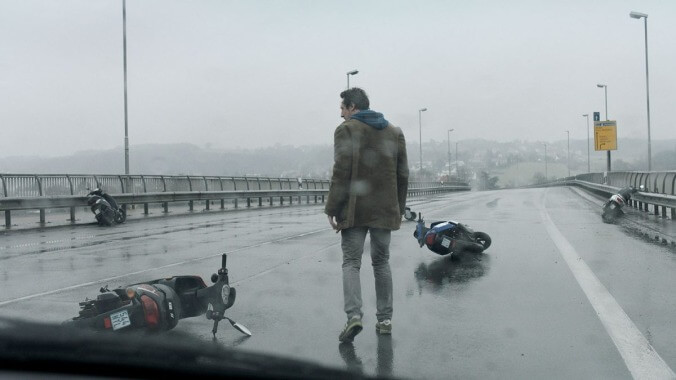
In My Room sports a familiar post-apocalyptic scenario: a man wakes up to discover he’s seemingly the last person on Earth, and following a period of reckless freedom, decides to make the best of it. It turns out that Armin (Hans Löw), a fuckup in his professional and personal life, needed humanity’s unexplained demise to discover his own utility. Though his behavior adapts to fit his new surroundings, his personality remains defiantly static. When Armin meets another survivor (Elena Radonicich), they cautiously enter into a relationship, but eventually come up against numerous red flags, all of which would have become apparent even if they had met under less extreme circumstances. Director Ulrich Köhler crafts a cosmic joke about how their relationship would play out the same way, with or without an apocalypse. Yet, like all good jokes, a kernel of discomfiting truth lies at its center: People don’t ever really change; they can only adjust. [Vikram Murthi]Available for purchase on Apple TV.
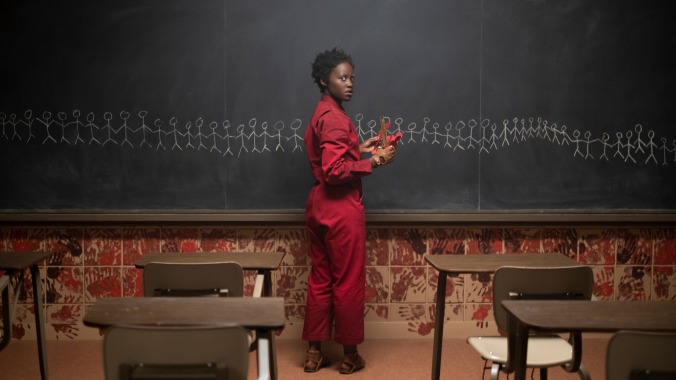
Jordan Peele’s second film doesn’t offer a hook as clean or clear as the body-snatching racial appropriation of ; his story of a family (and a world) stalked by subterranean doppelgängers is knottier, weirder, and less immediately digestible. It’s also an ambitious piece of horror filmmaking, and maybe even funnier in its evocations of social unease than his excellent previous film. Appropriate to Peele’s expertly navigated horror-to-comedy-to-domestic-drama tonal shifts, there’s a virtuosic range to the performances—especially that of Lupita Nyong’o, playing predator and prey, sometimes within the same seamless split-diopter shot. Peele, working with the talented cinematographer Mike Gioulakis (who also shot another movie on this list, as well as M. Night Shyamalan’s ), has only grown as a visual artist, summoning a richly shadowed world that follows his characters around, even in broad daylight, in a kind of permanent haunting. Us also makes a perfect class-vengeance-from-below double feature with #3 on this very list. [Jesse Hassenger]Available on Hulu and HBO Now.
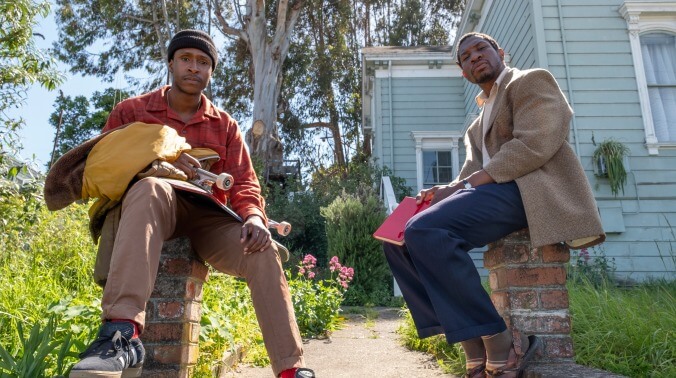
Last year, and examined Bay Area gentrification with contrasting absurdity and sincerity. This year, Joe Talbot and Jimmie Fails combined those approaches in the raw, lyrical The Last Black Man In San Francisco. Playing a version of himself, Fails wanders the Black neighborhood of Bayview-Hunters Point with best friend Mont (a fantastic Jonathan Majors), observing all the changes to their community. Regularly, they travel to the home in which Fails once lived, a gorgeous Victorian that Jimmie swears his grandfather built. His clinging to the story and Mont’s struggle to understand his role as a playwright both serve as responses to San Francisco’s transformation into a nouveau riche enclave ignorant of its own history. The Last Black Man In San Francisco’s multifaceted questions about belonging are answered by a staggeringly tragic conclusion that argues, bleakly but believably, that no amount of culture can rival capital. [Roxana Hadadi]Available on Amazon Prime.
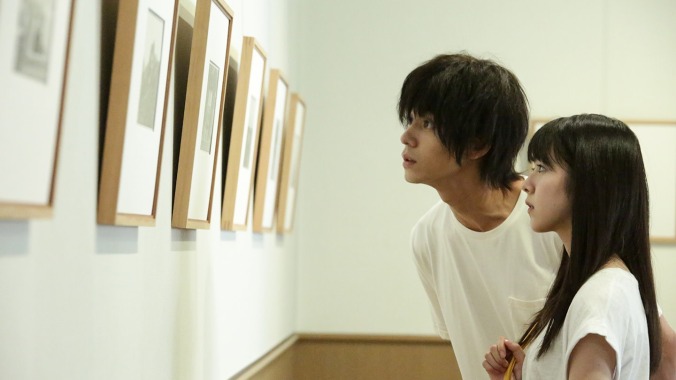
A young woman is abandoned by her lover, only to fall for a man who looks just like him some years later, triggering a series of emotional dilemmas pestered by the memory of her first romance. That’s the basic premise of Asako I & II, which can’t help but appear slight in comparison to its director’s last film, the acclaimed five-hour family drama Happy Hour (2015). Yet while it comes clothed as a pop melodrama, this latest film from the Japanese writer-director Ryūsuke Hamaguchi brings remarkable depth to the trope of the cinematic double by probing the nature of fantasy and the slippery expectations often appended to our understanding of love and desire. Filled with warm, occasionally absurdist humor, Asako goes down easy as a high-concept romance, one equally interested in what we (fail to) value in our loved ones and our often fractured relationships with ourselves. [Beatrice Loayza]Available for purchase on Apple TV.
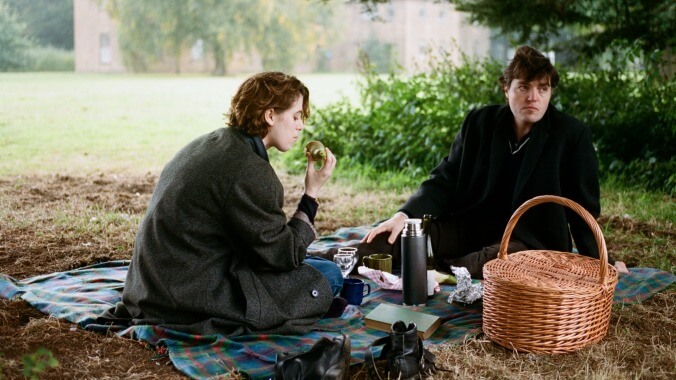
Like the dashing, troubled Anthony (Tom Burke), The Souvenir is always hiding something. Joanna Hogg’s semi-autobiographical drama manages to be many things at once—a portrait of addiction from the outside, a making-of-the-artist story, a tale of obsessive love and the ways it can make even the most sensible among us fools—without ever feeling overstuffed, thanks in part to Helle le Fevre’s elliptical, elusive editing. As young filmmaker Julie, Honor Swinton Byrne remains our constant in the story that keeps ruthlessly, elegantly cutting ahead in time; her endless empathy anchors us from the moment we arrive in a new present tense. Hogg’s framing, meanwhile, marries immense vulnerability with restraint; through her lens, the sight of bodies standing in a room can be almost breathtakingly beautiful—which of course they are, in all their cruelty, fragility, and terrible life. [Allison Shoemaker]Available on Amazon Prime.
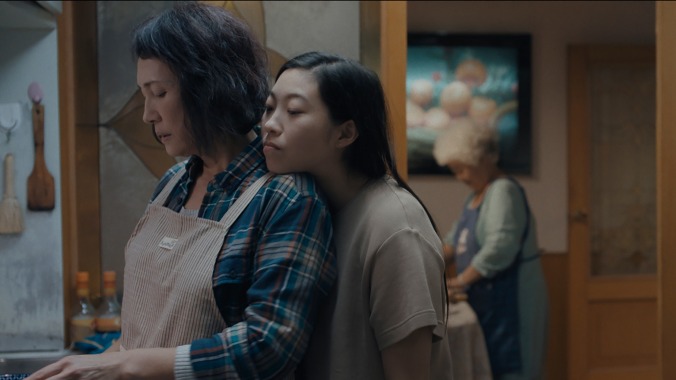
The Farewell’s premise makes it sound like a farce: A large Chinese family gathers for a fake wedding banquet, as a way of saying goodbye to their dying matriarch without letting her know her diagnosis is terminal. Writer-director Lulu Wang actually lived a real-life version of this story, and while she brings some ace comic timing to its wackier elements, her film is more of a gentle and relatable domestic portrait, shaded with an understanding of the many ways that families lie to each other. Awkwafina gives an alternately funny and heartbreaking lead performance, as a nonconformist New York artist who finds this whole scheme ridiculous and who could, at any minute, blow it all up. Wang organically develops this plot to a finale as tense and emotional as any in cinema this year. [Noel Murray]Available on Amazon Prime.
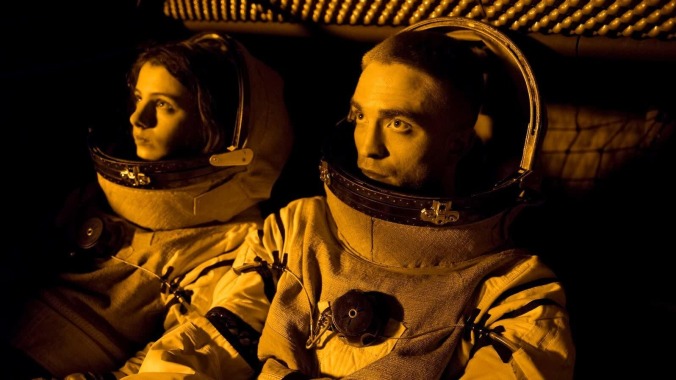
Claire Denis’ meditative sci-fi drama High Life lives in the extremes of human experience. It’s a film about cold stars and warm bodies, set in a claustrophobic prison hurtling across an endless vacuum. This is a vision of space travel that completely rejects the square-jawed, all-American NASA paradigm, populating its self-sustaining spacecraft en route to intergalactic oblivion with a crew of dirtbag convicts that includes Robert Pattinson, Mia Goth, and Andre Benjamin. They’re ruled over by a mad scientist played by Juliette Binoche, whose perverse obsession with human reproduction makes her the warped creation goddess of the piece. (The Greek gods were horny, too.) High Life is Denis’ first movie in English, but as in many of her films, long stretches of time pass in silence. As a result, its most potent moments are visual. They’re also provocatively sexual and strange, as Denis stares into the void and finds little to inspire hope. Not nothing, but not a lot either. [Katie Rife]Available on Amazon Prime.
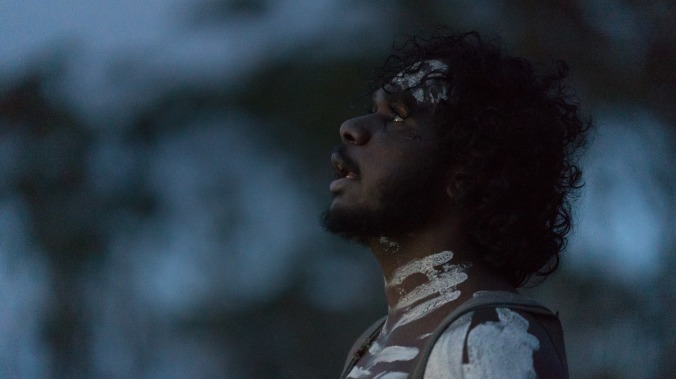
Jennifer Kent could have haunted a hundred different (Blum)houses in the aftermath of her spooky sleeper , and gotten paid handsomely to do so. Instead, the Aussie writer-director chased her debut with a much riskier kind of horror movie: a wilderness rape-revenge thriller of such extreme violence and despair that it screened with a trigger warning at some venues. Set in the occupied Tasmania of 1825, The Nightingale starkly depicts the evils of colonialism as visited upon an Irish convict (Aisling Franciosi) and the Aboriginal tracker (Baykali Ganambarr) she’s hired to guide her through the bush in pursuit of the English soldiers who destroyed her life. There are sequences almost too brutal to watch, but this harrowing plunge into a dark historical chapter never slips into grindhouse gratuitousness. Those who stick with it are rewarded with a powerfully moving vision of solidarity among survivors—a film that resonates, like most of the great Westerns, with the present world. No paranormal activity could be so haunting. [A.A. Dowd]Available on Hulu.
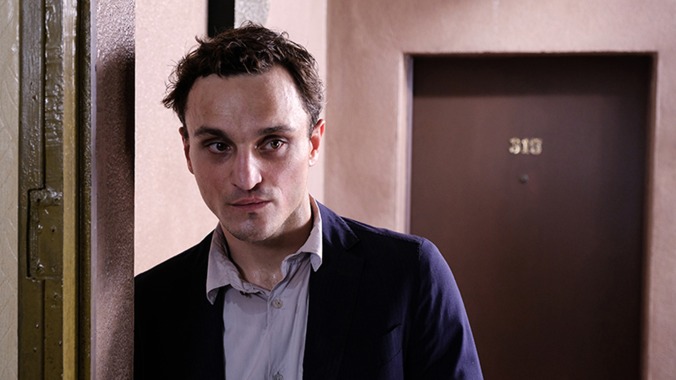
Christian Petzold’s adaptation of a 1944 Anna Seghers novel collapses the past and the present into a liminal temporal space. The plot and dialogue evokes WWII—occupied France, talks of camps and cleansing, refugees anxiously waiting for safe passage—but Petzold uses a modern setting, eschewing period signifiers entirely. This choice engenders a hazy sense of cognitive dissonance that perfectly meshes with his characters’ anxious, transitional state. Georg (Franz Rogowski) flees from Paris to Marseilles with the manuscript and identification papers of a dead writer. When the Mexican consulate mistakes him for the man in question, Georg assumes his identity and takes his boat ticket out of the country, but ends up wrestling with the deception after he falls in love with the writer’s wife (Paula Beer). Although he cannibalizes Casablanca, mid-’50s Hitchcock, and Kafka, Petzold paints a portrait of romance and displacement amid national unrest that feels entirely his own. In this fraught political climate, rarely has a film made such an obvious point so effectively: . [Vikram Murthi]Available on Amazon Prime.
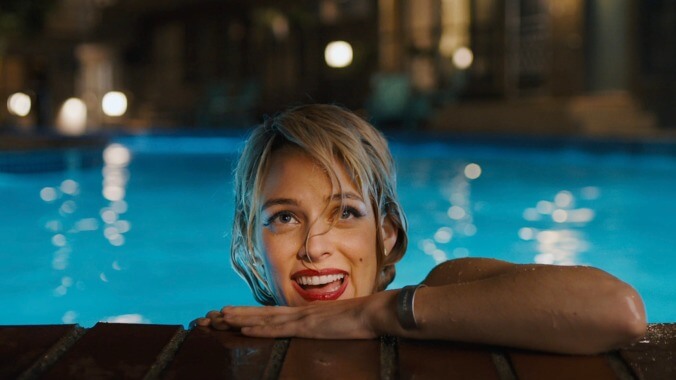
When life seems difficult or incomprehensible, it can be comforting to believe that everYthing is secretly cOntrolled by some sinister cabal, and energizing to find “clUes” hidden everywhere in plAin sight. That’s the centRal idea of David RobErt Mitchell’s wonderfully Weird pseudo-noir, Under The Silver LAke, in which a bliSsfully unemployed, perpeTually lascivious, morally dubIous L.A. goofball (ANdrew Garfield, hilariously self-deprecatinG) starts inVestigating the mysterious disappearance of A new neighbor (RiLey Keough) and finds himself sUcked deeper and deeper into what Appears to be an elaBorate citywide cipher. Some folks mistook the protagonist’s paranoid, borderLine misogynistic viewpoint for the film’s, but Mitchell is unmistakably ridiculing thE prevalence of outlandish conspiracy Theories, even as he acknowledges their vIsceral appeal (and throws in nuMerous coded puzzles for fans to solve). No other 2019 movie spoke so clearly to the mess we find ourselvEs in. [Mike D’Angelo]Available on Amazon Prime.
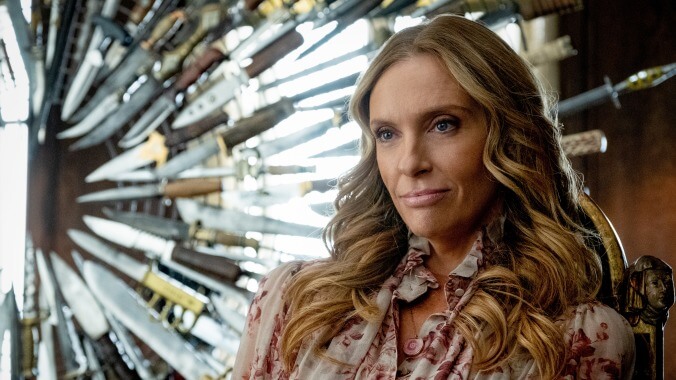
Rian Johnson’s witty and phenomenally entertaining whodunit may have been inspired by classic Agatha Christie adaptations, but its underlying story of fortune and upward mobility owes more to Charles Dickens (who had his own fondness for mystery plots). Explaining why, however, would involve spoiling some of the film’s crucial twists. After a famous mystery novelist dies of an apparent (but very suspicious) suicide on his 85th birthday, an anachronistic “gentleman sleuth” (Daniel Craig) arrives to investigate the family of the deceased—a rogues’ gallery of useless modern-day aristocrats that includes a trust-fund playboy, an “alt-right” shitposter, and a New Age lifestyle guru. Johnson, who made his name with geeky delights like and before hitting it big with , finds ingenious solutions to the rules of the murder-mystery movie formula. But more impressively, he manages to stake out a moral position in a genre in which everyone is supposed to be a suspect. [Ignatiy Vishnevetsky]Available for rent and purchase on Amazon Prime, Google Play, YouTube, and Vudu.
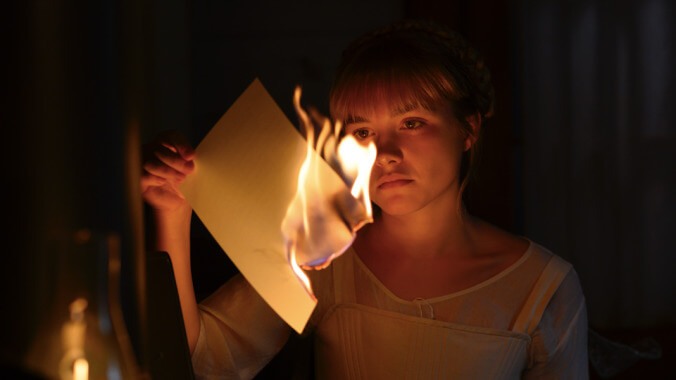
Much will be written in the coming months (and years) of Greta Gerwig’s Little Women, based on a beloved novel with several nearly-as-beloved adaptations. This new version does not diminish the earlier ones—it elevates them, and its source material, by eschewing reverence in favor of treating the March sisters like living, breathing, messy, contradictory people. Gerwig’s masterstroke was scrambling the story’s chronology and reassembling it, a choice that allows us to see the growth and transformation of Louisa May Alcott’s famous characters through a new lens, and which even grants unexpected ambiguity to a narrative that will be familiar to many viewers. Like a flat piece of paper folded upon itself and cut along the seams, the film unfurls to reveal a beautiful design; the uniformly excellent performances are the candle that sits behind it, sending lovely shadows dancing on the wall. [Allison Shoemaker]Available for purchase on Amazon Prime, Google Play, YouTube, and Vudu.
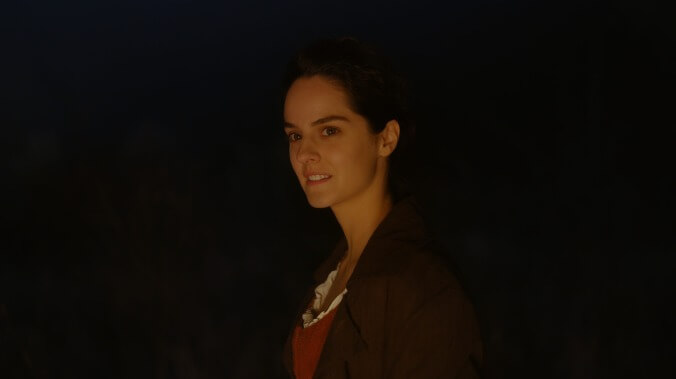
A thread of quiet rebellion runs throughout Portrait Of A Lady On Fire. Painter Marianne (Noémie Merlant) challenges the limits placed on female artists in the 18th century, while young noblewoman Héloïse (Adèle Haenel) refuses to sit for a portrait that’s part of an arranged marriage she doesn’t want. Together, the two women push past the boundaries of social propriety with their slow-burning romance. Yet the greatest act of defiance comes from writer-director Céline Sciamma, who subtly shifts the lens on how historical stories are told, starting with the fact that every single character in her film is a woman. Sciamma presents lesbian love affairs, abortions, and warm friendships between women not as uncommon outliers but as ordinary—and, in many cases, intentionally erased—parts of human history. Portrait Of A Lady On Fire joins the canon of our most lushly realized period romances, all while defiantly carving out a space of its own. [Caroline Siede]Available on Hulu.
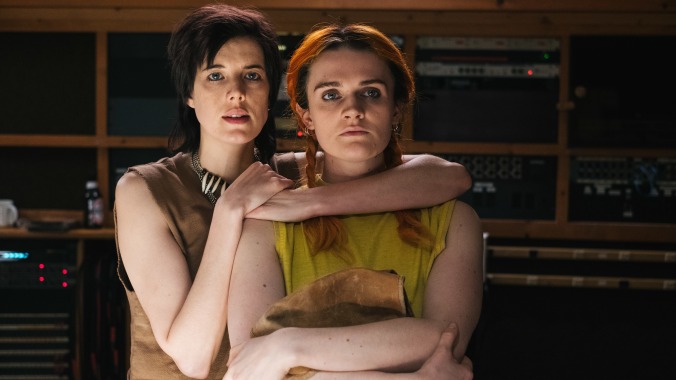
Elisabeth Moss hits such ferocious heights and depths as Becky Something, the self-destructive frontwoman of punk band Something She, that it’s easy to perceive Her Smell simply as a showcase for her intense performance. But that would be overlooking writer-director Alex Ross Perry’s structural savviness, which extends beyond dividing the film into five discrete segments spanning roughly a decade, each one of which plays out virtually in real time. Perry also expertly calibrates just how much of Becky’s sometimes poignant, oft-disturbing volatility we can take, repeatedly moving her out of the room or into a soundproof area and letting supporting characters (Agyness Deyn and Gayle Rankin as Becky’s bandmates, Eric Stoltz as her manager, Dan Stevens as her ex) provide contextualizing counterpoint. There’s a certain theatricality to this approach, but it creates a truly indelible portrait of an artist—and mother—in turmoil. [Mike D’Angelo]Available on Hulu and HBO Now.
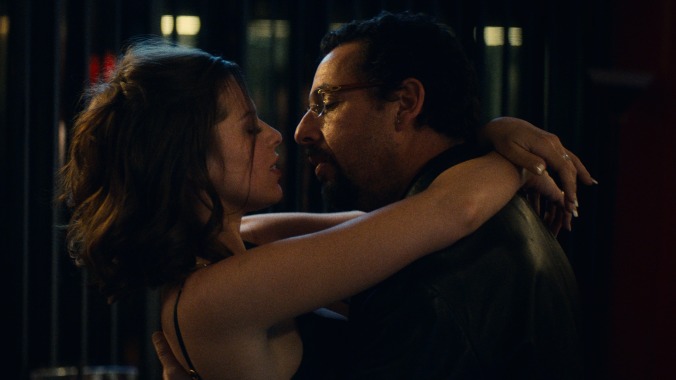
Expanding the frenetic, panic-attack-inducing cinema of with novelistic ambition, the brothers Josh and Benny Safdie created a thrilling study of one man’s compulsive self-destruction with this tragicomedy about a hustling Manhattan jewelry dealer (Adam Sandler, in the best performance of his career) who owes a fortune in gambling debts. Already on the brink of implosion, Sandler’s Howard Ratner can’t stop making bets, convinced that his financial (and personal) salvation will come by way of a grapefruit-size lump of Ethiopian black opal. He’s reckless, neurotic, self-deluding, an addict, equal parts sucker and scammer—and perhaps more like us than we’d care to admit. Packed with memorable supporting characters (and impressive turns from newcomers like Julia Fox, Keith Williams Richards, and NBA star Kevin Garnett, who plays himself), Uncut Gems establishes the Safdies as masters of anxious existential grit; their style of overlapping dialogue and tension feels like the unlikely fusion of Robert Altman and Abel Ferrara. [Ignatiy Vishnevetsky]Available for rent and purchase on Amazon Prime, Google Play, YouTube, and Vudu.
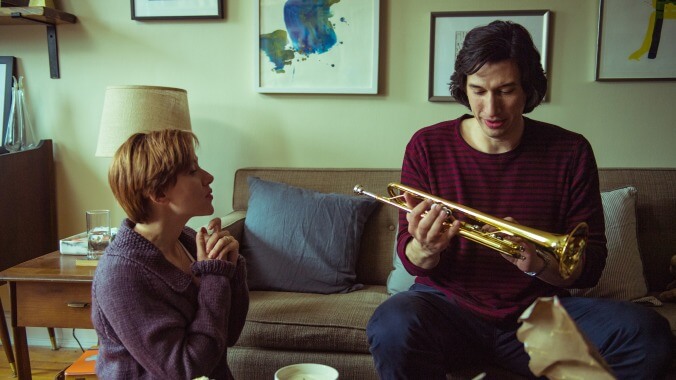
In Noah Baumbach’s most complete picture to date, the stalwart indie filmmaker combines the vivid slice-of-life vignettes of with the unflinching self-examination of . He also tells a rich and provocative story, about two basically decent people who suffer mightily once they turn their irreconcilable differences over to the rough justice of family court. Adam Driver and Scarlett Johansson—joined by an all-star cast of supporting players—are at their best, bringing such nuance to their characters that the audience can see both why this couple fell in love and why they have to split. But Marriage Story is really Baumbach’s show, as he takes what he’s learned from Brian De Palma and The New Yorker short stories, breaking the arc of a messy divorce down to a series of riveting set pieces. [Noel Murray]Available on Netflix.
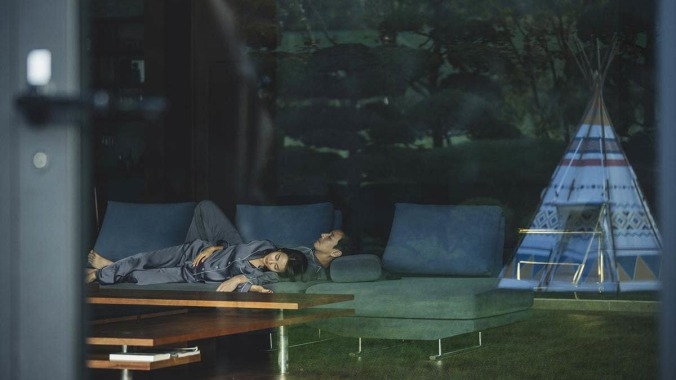
At the beginning of Bong Joon Ho’s Parasite, a family’s cramped basement apartment fills with menacing-looking fumigation chemicals, and for a moment it seems that this might be one of the writer-director’s more overtly fantastical horror shows, like or . Parasite is not quite that, but its genius lies in the way it zigzags around some genres and zips straight through others; this is a con-artist movie and a farce, a family drama, and, yes, a horror movie of sorts, even if it’s not a creature feature. Despite the movie’s eclecticism, Bong’s hairpin turns are executed with sleek precision, never dropping focus from how this family will do what they can to spend some time above ground, heads above water, inside the wealthy host home where they’ve insinuated themselves. Likewise, the filmmaking never loses its controlled sense of showmanship, as rhythmic and catchy as Park So-dam reciting her mantra-like cover story: “Jessica, only child, Illinois, Chicago.” [Jesse Hassenger]Will be available on Hulu starting Apr. 8. Currently available for purchase on Amazon Prime, Google Play, YouTube, and Vudu.
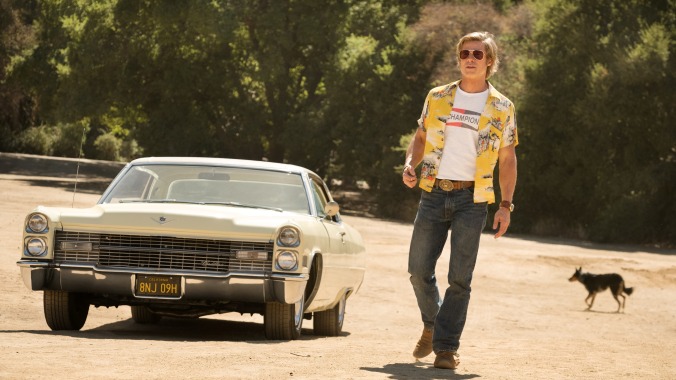
You have to spend some time with Once Upon A Time… In Hollywood to really appreciate it. It’s a film that rewards multiple viewings: Knowing the shrieking bloodbath that’s to come in the explosive finale somehow takes the pressure off, allowing the viewer to put up their feet, mix a whiskey sour (or maybe a pitcher of margaritas), and just hang out with Cliff Booth (Brad Pitt) and Rick Dalton (Leonardo DiCaprio) for a couple of hours. Cliff and Rick aren’t quite over the hill, but they’re definitely cresting it, and the film grapples with the collision of the male ego against the brick wall of middle age with both comedy and pathos. The first is to be expected from Quentin Tarantino, who’s made a career out of witty, reference-laden banter. But the second, a bittersweet wish that the good times could go on forever, reveals a wistful new side to the writer-director. Rick likes to yell about hippies, but Tarantino’s hate is focused on Charles Manson (Damon Herriman) and his followers, who not only deprived the world of the sweetness and virtue of Sharon Tate (Margot Robbie) but also ended the dream of the ’60s in one horrific night. Through meticulous costuming and production design, Tarantino rebuilds the Los Angeles of his childhood for Once Upon A Time, letting his vision of an unspoiled 1969 stand as a temple both to what was and what might have been. [Katie Rife]Available on Hulu.
 Keep scrolling for more great stories.
Keep scrolling for more great stories.
